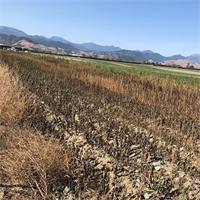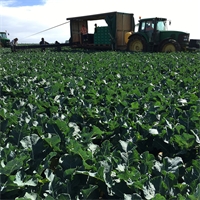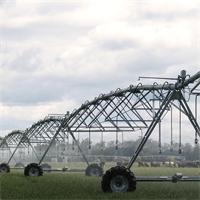03Aug
Not in-calf rates are still high
Not in-calf rates are still high
Article supplied by Bell Booth
New Zealand’s not-in-calf rates are still sitting around 17% and the question is, can anything be done to improve the situation?
Results from a nationwide study involving 55,000 cows that had been treated daily with the prebiotic Nutrimol 4n1, shows treated cows with a 74% 6 week in-calf rate compared to New Zealand’s 66% 6 week in-calf rate. We will look at some of the background issues surrounding poor 6 week in-calf rates and the findings of a couple of recent studies.
Non-cyclers can be a problem because they either have had a ‘silent heat’ which is undetectable or they are ‘anoestrus’, no heat. Often non-cyclers are cows that have calved late or, as young cows they require an additional 10 days to start cycling after calving. Either way, if these scenarios are left unattended, milk production will be impacted during the next season.
Identification of non-cyclers by the planned start of mating (PSM) should be high on the dairy farmer’s priority list but planning a strategy to increase the 6 week in-calf rate before mating is probably a better idea. The evidence suggests cows that maintain a good body-score between calving and mating and don’t suffer from a range of animal health problems or metabolics during calving, are more likely to cycle on time.
Bell-Booth, the manufacturers of Nutrimol 4n1 and the IntenSE range of water-soluble specialist trace element products for dairy cows, have been helping dairy farmers lift cow performance in the mating process. The first focus has been to ensure cows calve-down well by addressing specific trace element and mineral deficiencies well before birthing. The second focus has been to encourage early hormone production so that more cows cycle by the PSM. Any improvement in heat-strength has been assisting farm staff to detect cows more easily, that means they only put up animals that are ready for servicing. The last stage of the process is around assisting cows to hold after insemination so that a greater percentage of the herd is in-calf earlier.
In 2017 Bell-Booth undertook a study involving 104 dairy farms that milked 38,000 cows. The study highlighted herd reproductive outcomes from the previous spring mating. This year, Bell-Booth ran an extension study to investigate the reproductive results from 143 dairy farms, 55,000 cows, to assess the performance of Nutrimol 4n1 treatment. The herds represented in both studies, had implemented a 130-day, Nutrimol 4n1 spring-treatment. Analysis of the fertility data of these farms, comparing the outcomes from two challenging mating seasons (particularly unfavourable weather in both seasons), indicated a two-point improvement in the 6 week in-calf rate from 72% in the 2016 study to 74% for spring 2017 mating. The improvement from 72% to 74% is a solid gain but also highly significant when compared against the backdrop of a national average 66%*. The 6 week in-calf rate is an important target as it not only impacts on milk production through days in-milk, but also provides cows with the recovery time required between calving and the planned start of mating. It improves the opportunity for the cow to get back in-calf, early next season.
Finding highlights from the two studies:
|
|
Nutrimol 4n1-treated herd results, spring 2016 mating
|
Nutrimol 4n1-treated herd results, spring 2017 mating
|
NZ 6 week in-calf rates across 2016 & 2017*
|
|
Number of cows in study
|
38,000
|
55,000
|
|
|
Average 6 week in-calf rate
|
72%
|
74%
|
66%
|
|
Average not in-calf rate
|
11%
|
12%
|
17%
|
|
Total mating length
|
10 weeks
|
- weeks
|
11 weeks
|
There is no money in carry-over cows. However there is money to be made by improving six week in-calf rates and reducing not in-calf rates. The results from both studies indicate the addition of daily Nutrimol 4n1 to the cow’s diet forms part of a sensible mating program. With an investment of less than $8.50 +gst/cow for the full 130 day 4n1 plan, it is money well-spent in helping get more cows in-calf early. The Nutrimol 4n1 formulation was designed and is manufactured in New Zealand, by Bell-Booth Ltd.
For more information, please contact your local Ruralco store.
*www.6weeks.co.nz/national reproductive performance results 2012-2017
Related

Pasture renewal is a crucial practice for improving the productivity and profitability of a farm. By...
Read More

Summer was challenging for the horticulture industry, with drought conditions – which were particul...
Read More

This year’s Ruralco Instore Days prize draw period kicked off on June 1. Every $250 spent with...
Read More

Otago high country farmer jack cocks has spent the past eleven years recovering from a life-threaten...
Read More

On 1 July 2018 the first regional fuel tax (RFT) allowed under law came into force in Auckland – an...
Read More

There’s no doubt that farmers have a lot of challenges ahead of them – particularly in keeping up ...
Read More